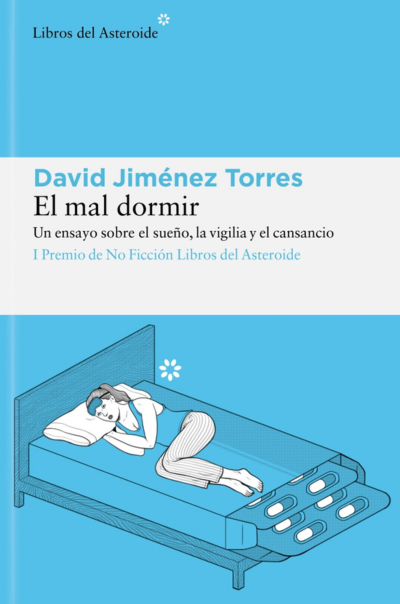Recently, the media has related countless news on the critical situation in which companies currently find themselves. One specific case is Airbus; later recording losses of 481 million euros in the year’s first quarter, it reduced its production by a third. These low figures are accompanied by temporary labour adjustments (ERTE) that will affect —to date — 6,200 people. These staff cuts will be applied at factories in the UK and France. However, these difficult circumstances have also reached the Spanish plants in Getafe, Illescas and Puerto Real. Airbus itself has communicated its intention to suspend contracts and reduce working hours for 1,200 workers.
Airbus’ CEO has stated that «the survival of Airbus will be in danger if we do not take action now.» For his part, the French Minister of Economy, Bruno Le Maire, has asserted that his country is prepared to help them «in a complete and massive way.» In Germany — the country that owns 11% of the company, like France — debate also exists surrounding this rescue. The president of the Association of German Aerospace Industries, Volker Thum, has pointed out that the national (German) sector may collapse if Airbus sees its production fall in shares of more than 50% compared to the rate it maintained before the COVID-19 crisis.
This decrease in personnel has already affected the military branch of the company in Spain. On February 19, it was announced that 630 jobs would be eliminated in our country from the total of 2,362 in the entire European aeronautics division.
Specifically, commentaries by the European Works Council of Airbus Defence and Space foresee a restructuring that will affect the facilities in Spain by the end of 2021 as follows:
– Getafe (Madrid): 275 jobs.
– Tablada (Seville): 116.
– San Pablo (Seville): 100.
– Barajas (Madrid): 72.
– Bay of Cádiz Center (Puerto de Santa María): 44.
– The remaining 23 positions correspond to the division’s subsidiaries, CRISA and Secure Land Communications, both located in the Madrid region.
In the aforementioned document, the Human Resources Department admits the delicate financial situation that the Airbus Defence Division is experiencing as a result of the low expectations of exporting the A400M military transport aircraft, and the lack of orders in recent years.
Spain, despite being a country of airplane assembly, is the only one that has renounced part of its initial order; in 2013 it decided not to take on 13 of 27 orders for budgetary reasons. An industrial blow that, in addition, poses competition to Airbus itself with regard to the sale of planes to third countries. The fact that Spain desists from keeping the units to which it was initially committed, canceling them or, in the best of cases, selling them, breaches the agreement reached with other nations on the distribution of jobs as it would only correspond to 8% of the program, instead of 15%. This does not set a good precedent for international cooperation. Spain will no longer appear to be a reliable partner in future programs of this type, by betraying what is reflected in the Memorandum of Understanding to obtain an industrial benefit.
The Spanish Defence Industrial and Technological Base (BITD) constitutes a fundamental element in obtaining and maintaining the military capabilities that the Armed Forces need to carry out their assigned missions. Currently, the national defence industry has an annual turnover of more than 6,000 million euros, which is equivalent to 4.38% of the GDP of the entire Spanish manufacturing sector. In addition, it is a fundamental representative of technological innovation and a generator of qualified employment at the national level. For this reason, the policy of the Ministry of Defence aims to promote industrial and technological development linked to the area of Defence and Security, especially in terms of knowledge that affects the essential interests of this area.
According to the report «Perspective of the defence industry” [1], published by this ministry in 2017, its total sales have reached a value of 6,188 million euros, an increase of 8.8% compared to the previous year. Of these, 1,155 million (18.7%) belong to direct sales to the Ministry of Defence, and 5,033 million (81.3%) are exports. This represents a growth of 18.1% in the former and 6.8% in the latter. It is noteworthy that, historically, around 80% of sales for defence activities are made by five large companies, while 26 of them account for 90% of the entire market. In the Register of Companies of the General Directorate of Armament and Material (DGAM) for the year 2017, 373 companies with defence sales are registered, of which 124 made exports. Around 10% of the turnover of this industrial base has been dedicated to innovation, with a productivity of almost €115,000 per year per employee. It is estimated that this activity translates into an economic boost that generates 2.5 euros for every euro invested. The defence sector in 2017 had an average of 22,641 direct employees.
On Tuesday, April 28, the Council of Ministers approved a royal decree amending Royal Decree 679/2014, of August 1, on the control of foreign trade in defence material, other material, and dual purpose defence products and technologies. The main change lies in «intensifying controls on the export of defence material and other material in certain cases and to adequately control exports when the sensitivity of the operation and national interests so advise.»
According to the latest report on “Spanish exports of defence material, other material and dual-use products and technologies in the first half of 2019” [2], the value of exports made in the first half of 2019 amounted to 2,413 million euros, with an increase of 41.5% compared to what was obtained in the same period of 2018 (1,705.2 million euros).
The State should commit to increasing investment in this extremely beneficial sector.
However, this modification confirms what is stated in Law 53/2007, of December 28, on the control of foreign trade in defence and dual-use material. Thus, both this Law and the modification of the aforementioned Royal Decree endanger the only escape route that the Spanish defend e industry has –- exports — since the chronic under-financing suffered by our Armed Forces does not allow the national industry to survive. According to the report «Outlook of the Defence Industry» published in 2019 by this ministry, exports represent more than 81% of the turnover of the defence industrial sector.
Despite the fact that this report emphasises the need to create a regulatory framework that facilitates activity and increases exports, it seems that the Government is determined to bankrupt a technologically cutting-edge sector whose investments are more than profitable, both in economic terms and in terms of strategic autonomy.
As we can see, the situation in the defence industry is critical. On the one hand, it suffers under an Executive that does not comply with commitments and, in addition, adds more administrative and bureaucratic obstacles that further hinder the possibilities of exporting in a sector that is already highly regulated and protectionist, despite benefiting through competition, as shown in the aforementioned studies. In addition, the field of defence is mainly characterised by its technological component.
Given the nature of the sector, State intervention is necessary, but should not subsist by rescuing inefficient companies that do not have the necessary balance to survive in the market. The state role must be limited to generating an accessible and enabling regulatory framework, which allows an improvement in the competitiveness of our companies, therefore increasing their exports. A tax cut for high-tech sectors would be the proper answer to this dilemma. In addition, the State should intend to act from a realistic perspective, and postulate itself as a facilitator in the agreements between the companies and the interested countries. It should also commit to a significant increase in investment, since, as has been demonstrated, defence is a highly beneficial sector.
In short, Spain cannot afford the luxury of outsourcing its equipment needs, given that situations like the current one rob the country of such necessary goods such as masks, PPE, etc. However, this imperative to own a national industry should not translate into state intervention that consists of bailouts or massive capital injections. This type of action, so widespread in our country, only introduces a distortion in the markets —by supporting companies that are not competitive and that, on many occasions, become second homes for politicians.






